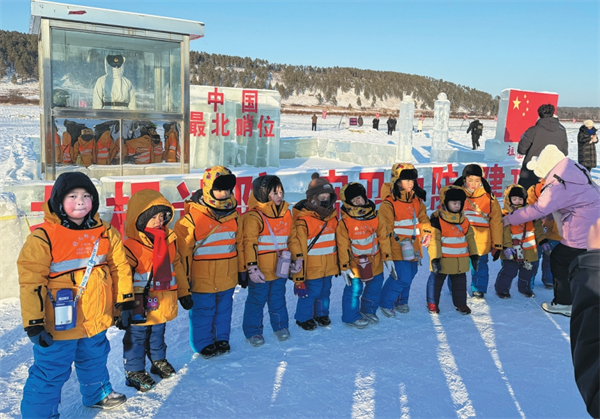Home>Harbin Today
Taking a shot at respectability
Updated : 2017-03-08
By ( Xinhua )
Deeper domestic talent pool needed for national teams
After China's national men's hockey team was outscored 32-0 in its three games at the recent Asian Winter Games in Sapporo, Japan, head coach Hu Jiang blamed the poor performance on the absence of a domestic talent pool, declaring: "The national team does not have enough players from which to choose."
China's women's team was much more successful at the Games, finishing second, but a 6-1 loss to the host nation in the final underlined the huge difference in hockey development in the East Asia neighbors.
Chinese hockey has fallen into a vicious cycle, with the shortage of homegrown talent leading to lackluster performances by domestic professional teams and minimal attraction for new fans.
The nation is home to just two major pro teams: Asian League Ice Hockey's Qiqihar-based China Dragon and Beijing's Kunlun Red Star in the Russia-based Kontinental Hockey League.
The Qiqihar squad, which provides most of the national team players, went 4-38 this season and finished dead last in the eight-team ALIH.
Foreign players make up the bulk of Red Star's roster and helped the first-year expansion squad qualify for the Gagarin Cup playoffs.
Last week, Red Star was eliminated 4-1 in a best-of-seven quarterfinal against defending champion Metallburg MG.
The official website of the International Ice Hockey Federation shows China with 1,101 registered players of both genders, while Japan has nearly 20,000.
"How can we develop women's hockey in a country that has only around 100 female players?" said Yu Tiande, manager of the Chinese teams.
Team captain Yu Baiwei said the squad has always lowered its qualification standard in order to attract very young players because there are few talented veterans to choose from.
"Compared to Japan, the Chinese players are very young and inexperienced," she said.
The lack of domestic competition was another reason given for the poor performance. Team China tuned up with several exhibition games while training in Canada, but fell off form after returning home ahead of the Sapporo tournament.
Meanwhile, Japan's women's team has climbed to No 7 in the world after being mired in mediocrity and missing three straight Winter Olympics after Nagano in 1998. By raising training standards and playing more international games, the team rebounded from an all-time low to qualify for the 2014 Games in Sochi.
"The Sochi Olympics changed our players' life," Team Japan manager Hosoya Taeko said in Sapporo. "Our players no longer have to worry about where or how to earn money. They are famous now. Because of them, more young people are taking up hockey."
Yu said China should boost the development of grassroots and youth programs while at the same time learning from what Japan and South Korea have done to improve their international rankings in the world's toughest team sport.
"With five years to go before the 2022 Beijing Winter Games, China should lay out a long-term development plan for hockey," said Yu.
"I hope China will no longer be a pushover in five years and will continue to improve to where our teams will be to be a force to be reckoned with in one or two decades."

Harbin ramps up childcare services
A new comprehensive service center for childcare in Harbin is expected to be finished by the end of the year.
-
Talent policies drive enterprise development in Harbin
Harbin's "30 New Talent Policies" represents an iterative upgrade to the talent policy system, helping attract and retain talent to bolster economic and social development.
-
Official website of 2025 Asian Winter Games goes live
Harbin, the host city of the 9th Asian Winter Games, has announced that the official website for the 2025 event has recently gone live.
-
Harbin launches measures to facilitate more foreign trade
In the first three quarters of 2023, the total import and export value of Heilongjiang province's goods trade hit 218.22 billion yuan.





